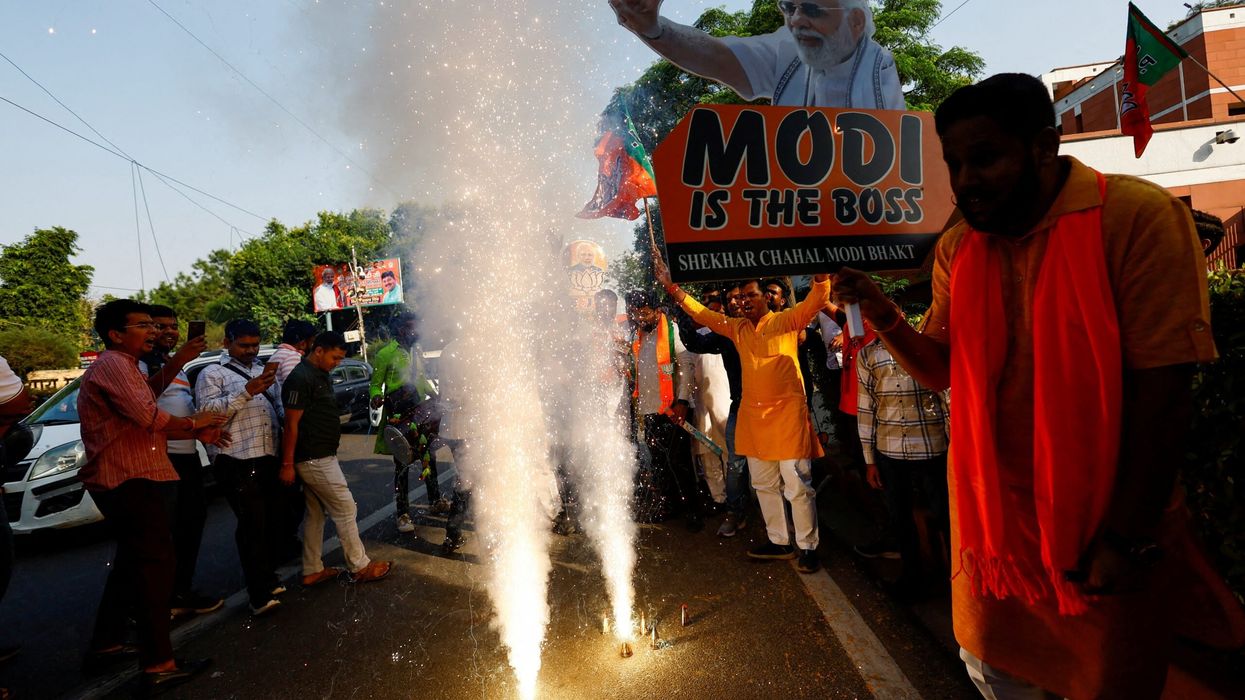INDIAN prime minister Narendra Modi's Bharatiya Janata Party (BJP) headed for a surprise election victory in Haryana state on Tuesday (8), reinforcing its popularity in the northern heartland a few months after stumbling in national elections.
But the main opposition Congress party, which had been projected by exit polls to win Haryana, said it would not accept the result as it was "totally unexpected, completely surprising and counter-intuitive".
The Congress reaction was unusual in the world's most populous democracy where the credibility of elections has rarely been questioned in recent decades.
An opposition alliance also won the first elections in a decade in troubled Jammu and Kashmir, but the Hindu nationalist BJP managed to hold onto its Hindu base in a Muslim-majority territory where it has limited influence.
Held in phases that ended on Saturday, the provincial elections posed Modi's first test of popularity since his return in June as prime minister for a record third straight term, although he needed the help of regional parties after failing to win a majority in a shock outcome.
A fall in support in rural parliamentary constituencies, unemployment, and a fear that the BJP could scrap affirmative action quotas for the so-called lower castes was blamed for the party's poor showing in the general election.
Supporters of the Jammu and Kashmir National Conference party shout slogans as they celebrate outside the vote counting centre on the day of the assembly election results, in Srinagar, October 08, 2024. REUTERS/Sharafat AliProvincial elections are mostly decided by local issues and the BJP was projected to lose Haryana due to anti-incumbency sentiment after ruling it for a decade, indicating more trouble for Modi's party before bigger state elections in coming months.
"I salute the people of Haryana for giving a clear majority," Modi posted on X in his first reaction. "This is the victory of the politics of development and good governance. I assure people that we will leave no stone unturned to fulfil their aspirations."
Congress said it would complain to the independent Election Commission of India (ECI) in a day or two.
"The result in Haryana ... goes against ground reality," Congress spokesperson Jairam Ramesh told reporters. "It is a victory for manipulation, victory for subverting the will of the people and a defeat for transparent democratic processes."
Ramesh said Congress had received very serious complaints about the vote count and the functioning of electronic voting machines from at least three districts and these would be compiled and taken to ECI.
Under Indian election laws, candidates can complain to ECI about counting issues and seek redress. They can appeal to the courts if they are not satisfied with ECI's response.
The ECI spokesperson did not immediately respond to a request for comment.
Results on the ECI website showed the BJP winning or leading in 48 seats in Haryana against 37 for Congress.
In Jammu and Kashmir, whose special autonomy Modi scrapped in 2019, the alliance of Congress and the regional National Conference (NC) party won 48 seats.
Both legislatures have 90 members each.
If it sticks, the Haryana outcome is a shot in the arm for BJP prior to regional polls in the more politically significant states of Maharashtra and Jharkhand.
Maharashtra, a western industrial hub where the financial capital Mumbai is situated, is ruled by a BJP coalition, with an opposition alliance in power in mineral-rich Jharkhand.
Elections in both states have yet to be announced, but are expected to be held in November.
"This changes everything for BJP," said Yashwant Deshmukh, founder of polling agency CVoter. "If they had lost Haryana their morale would have been down. Now they will be on the front-foot, more aggressive in Maharashtra."
(Reuters)





